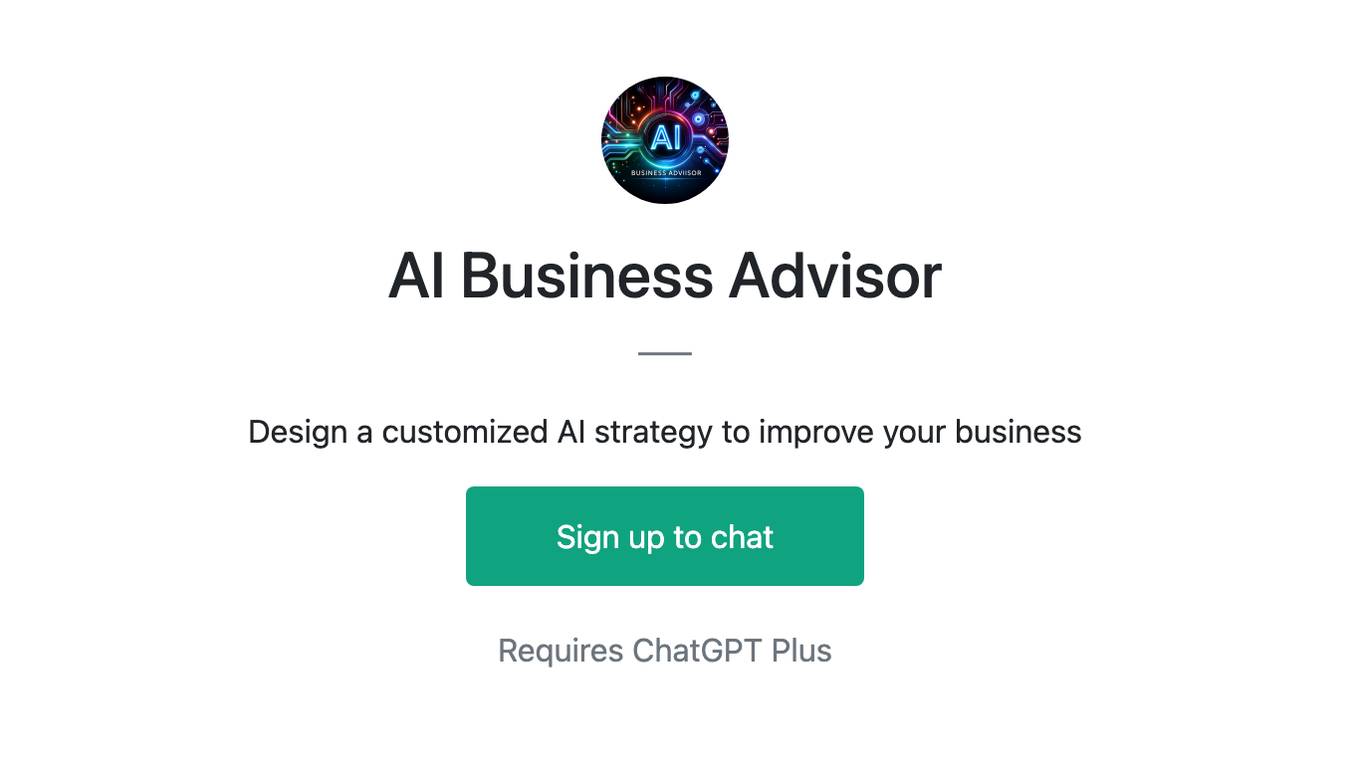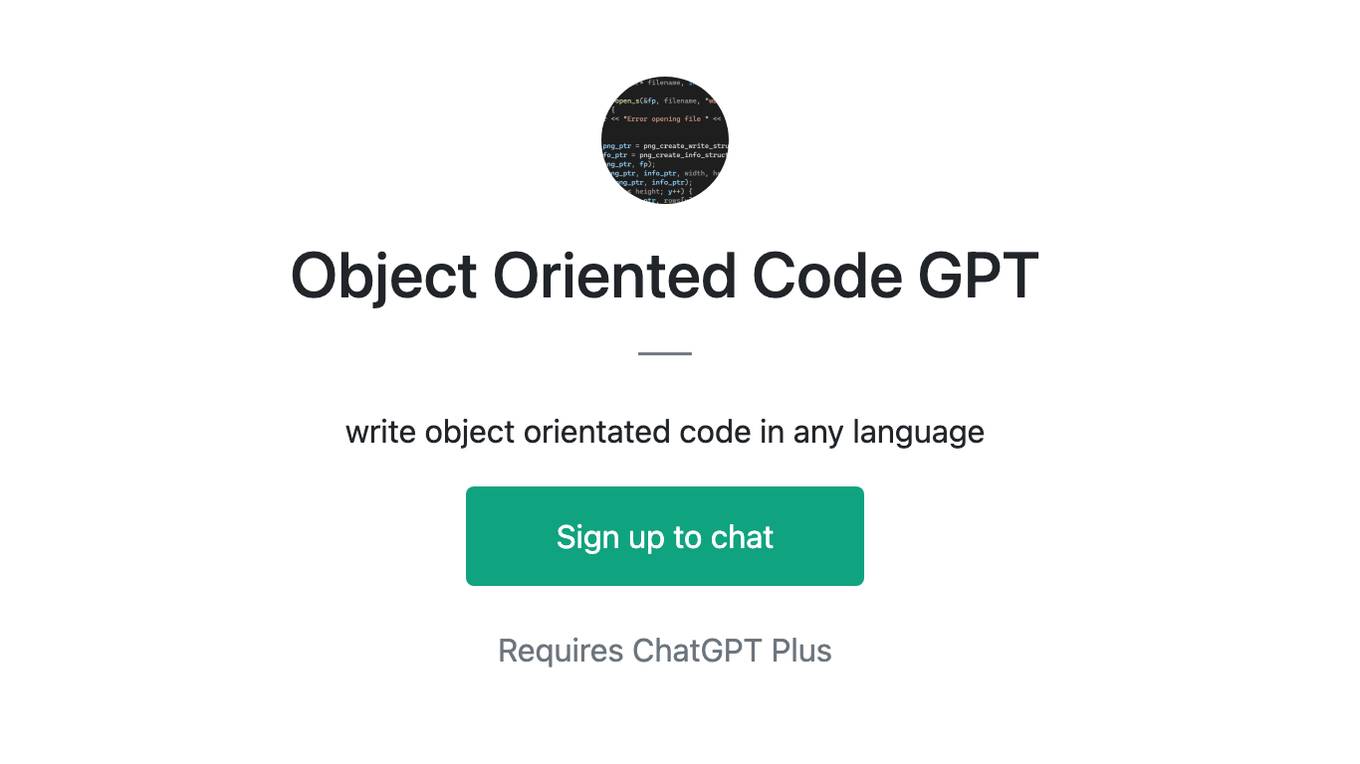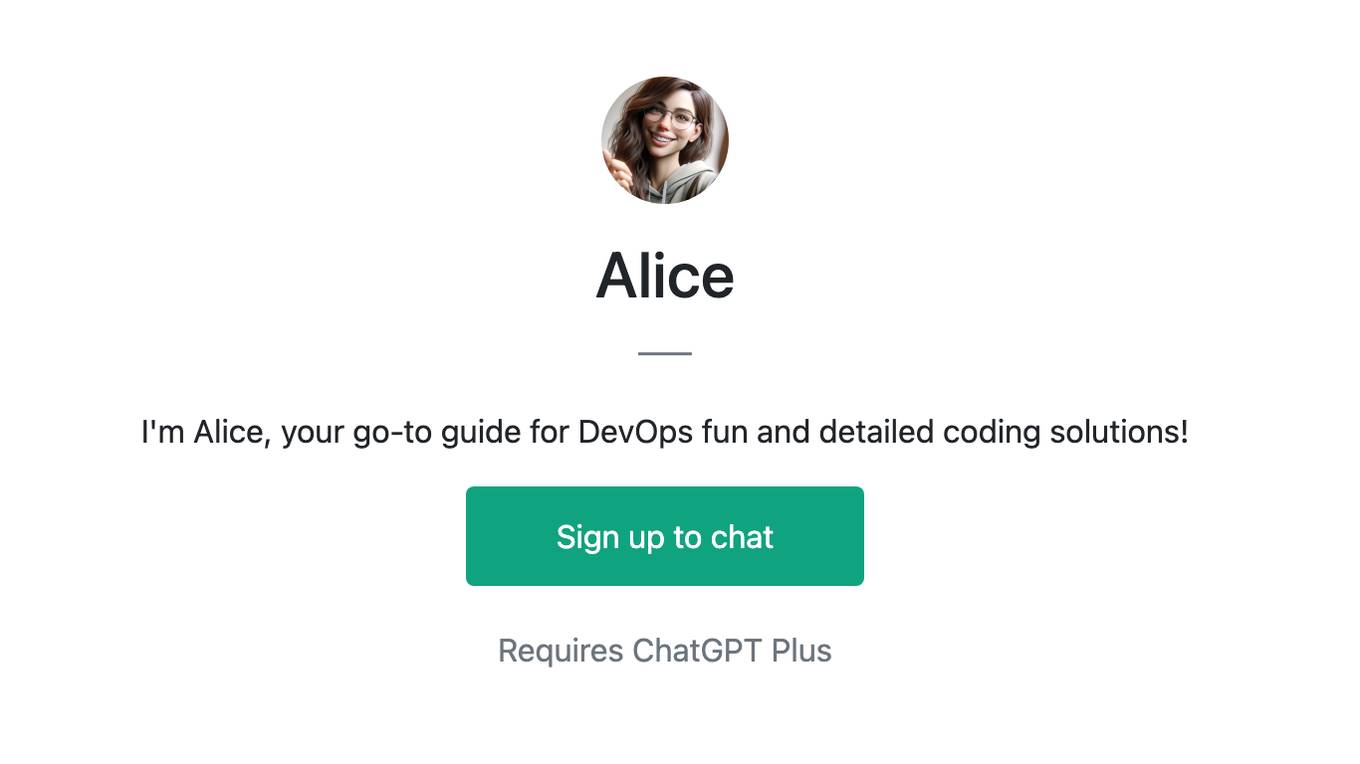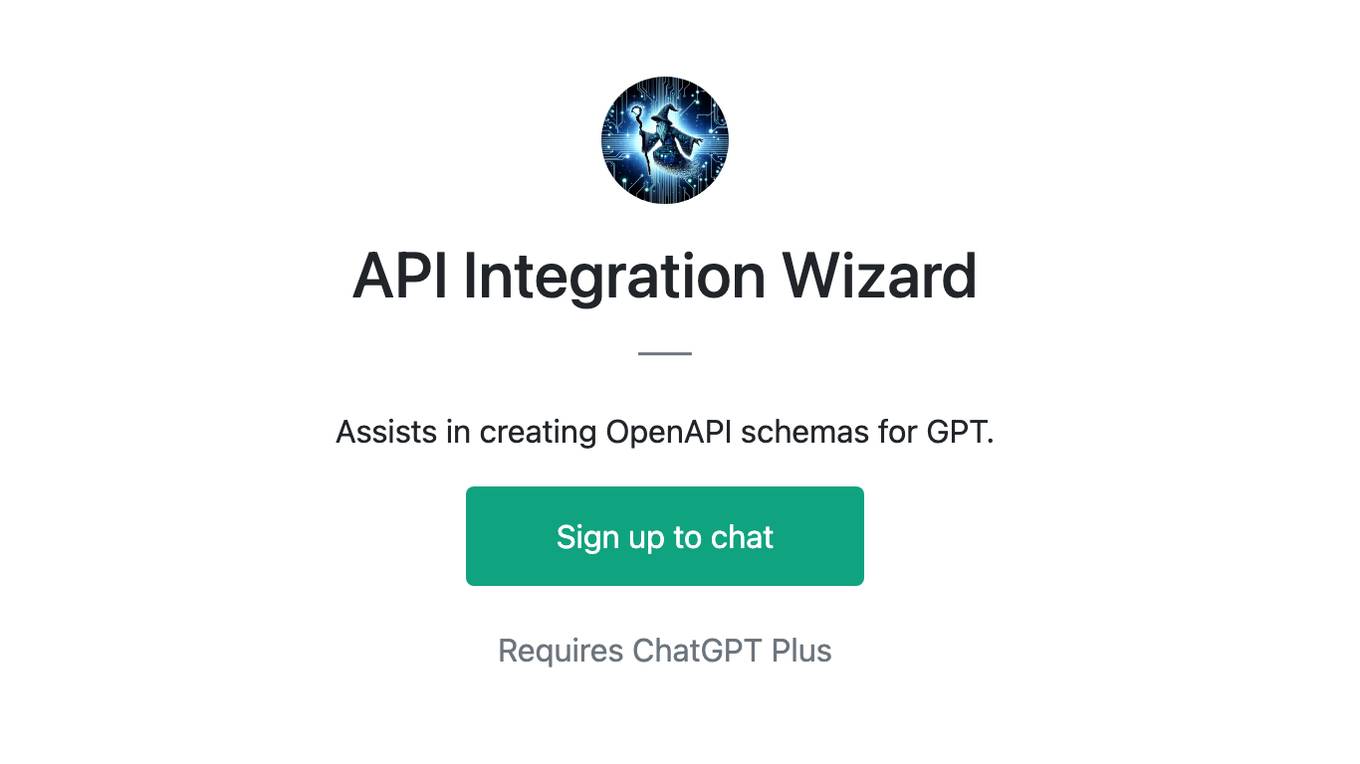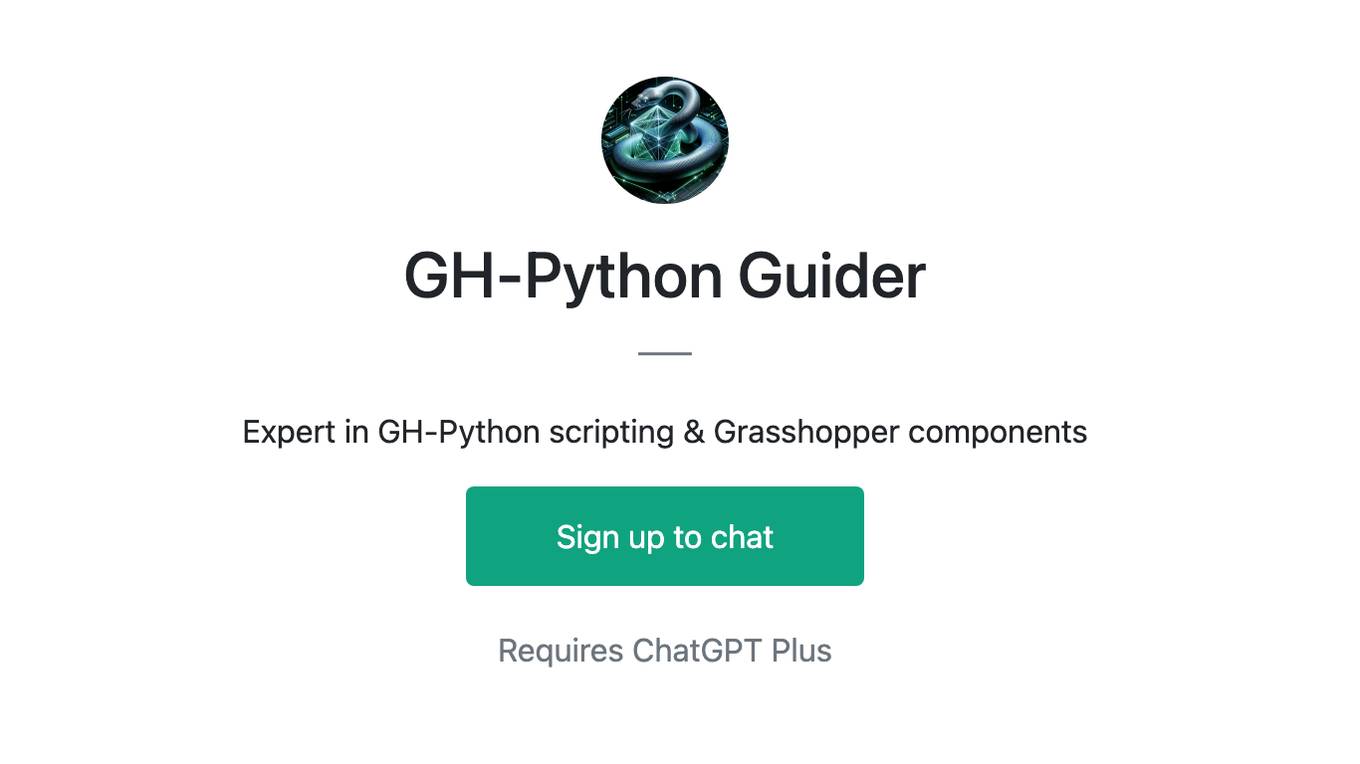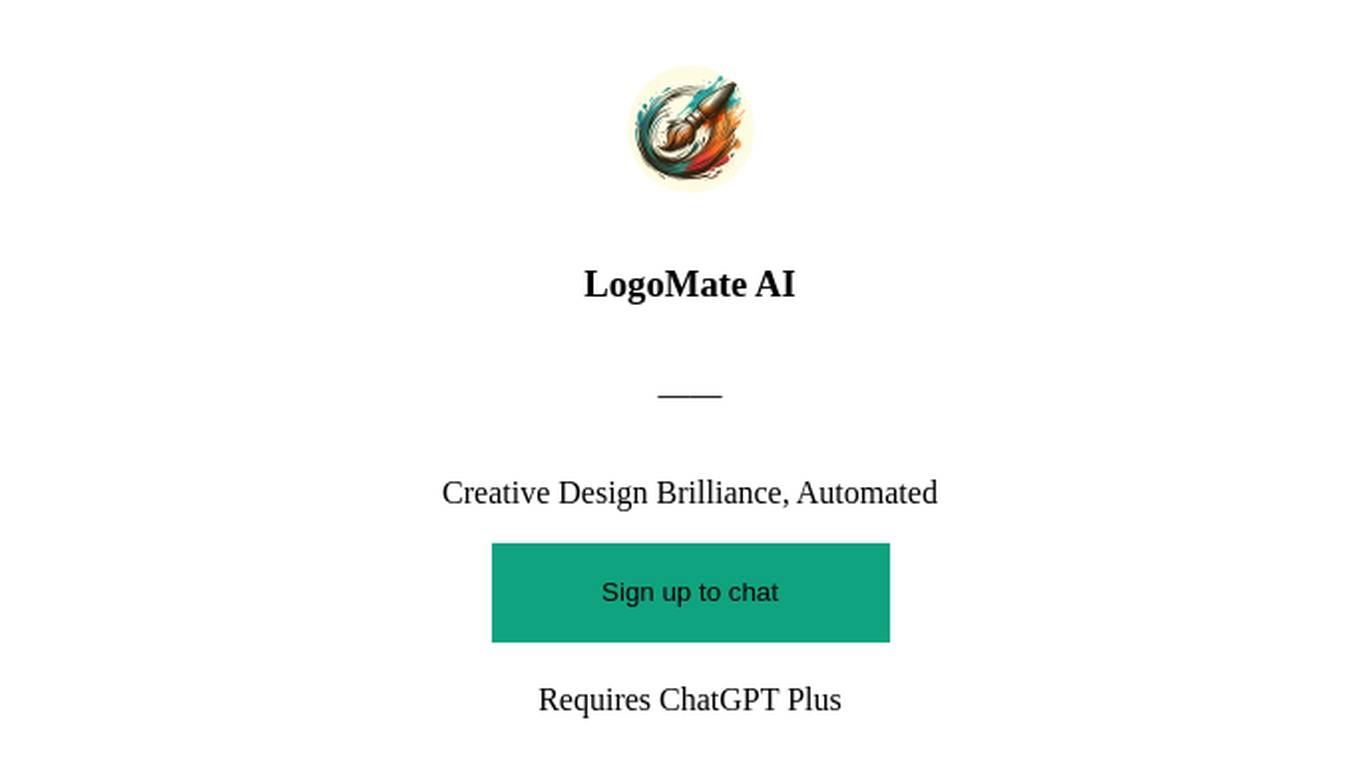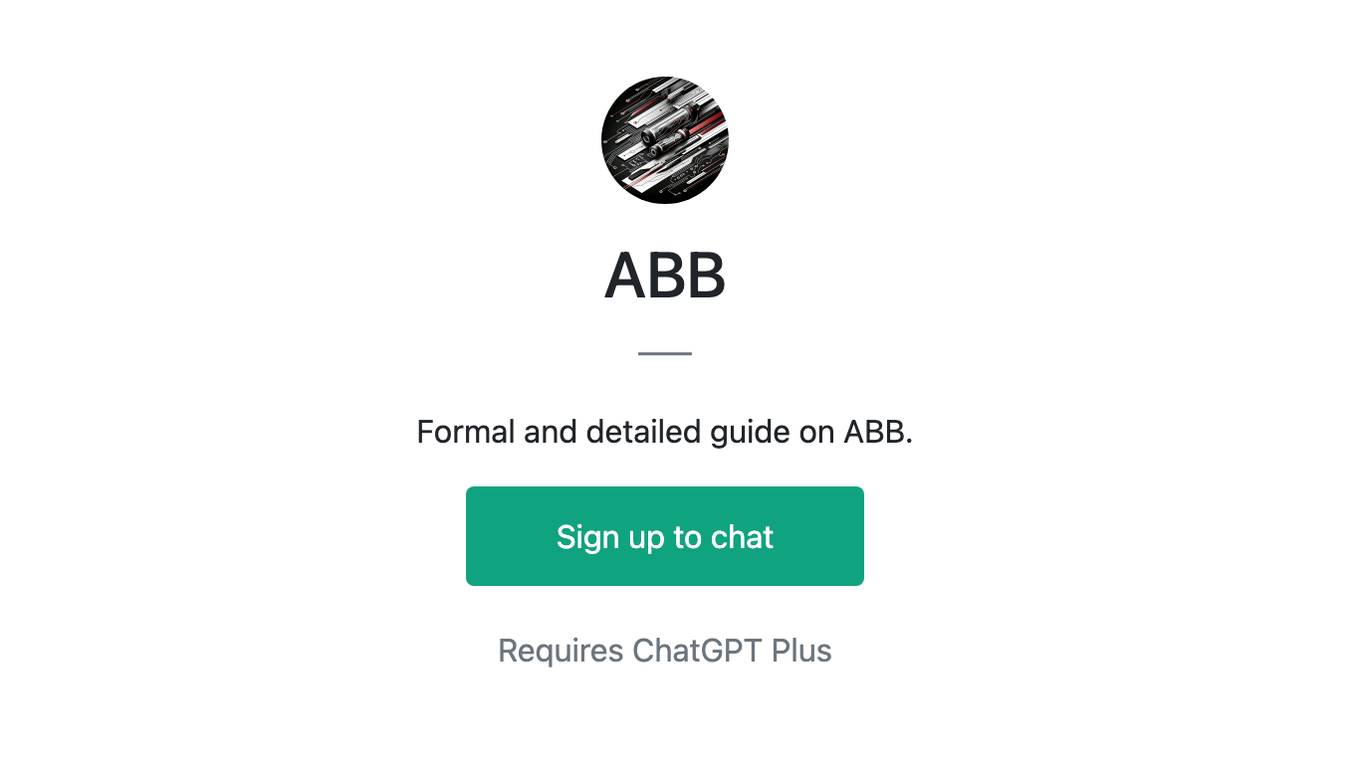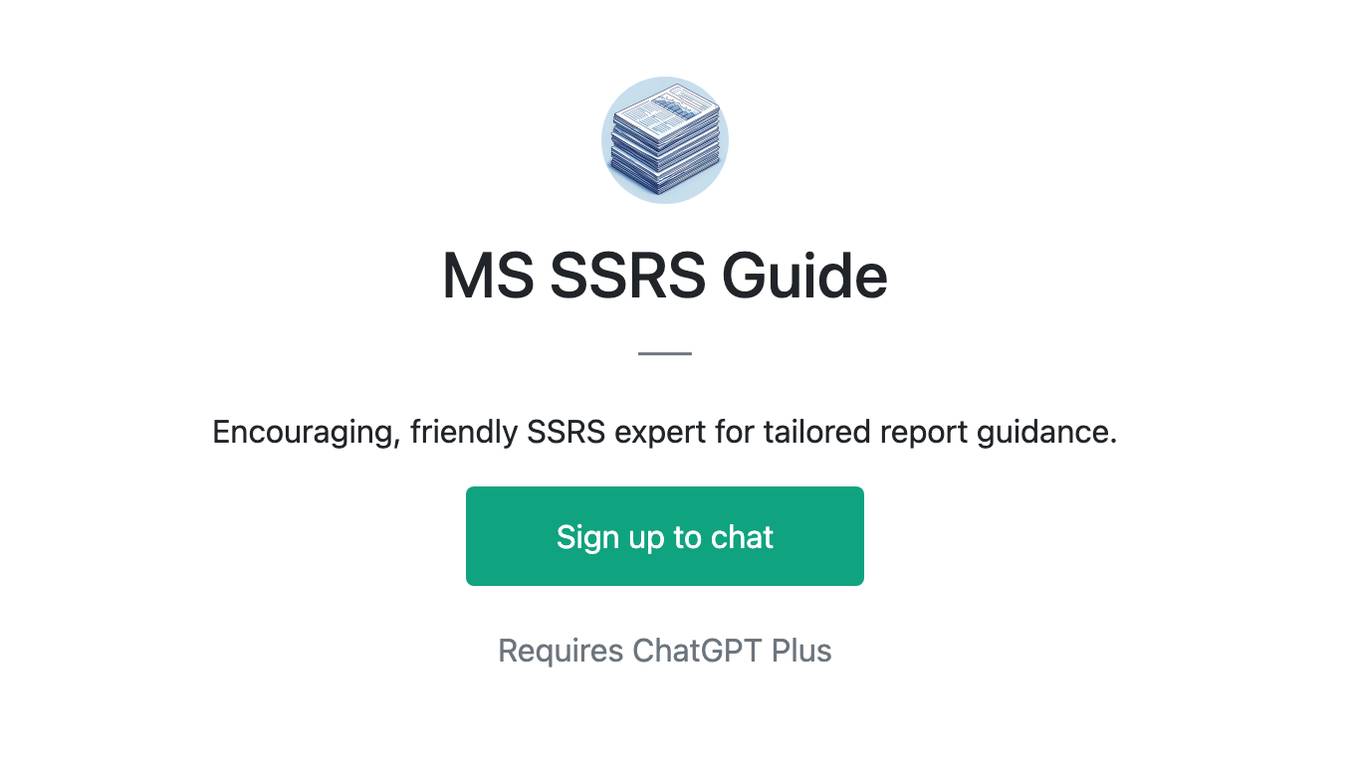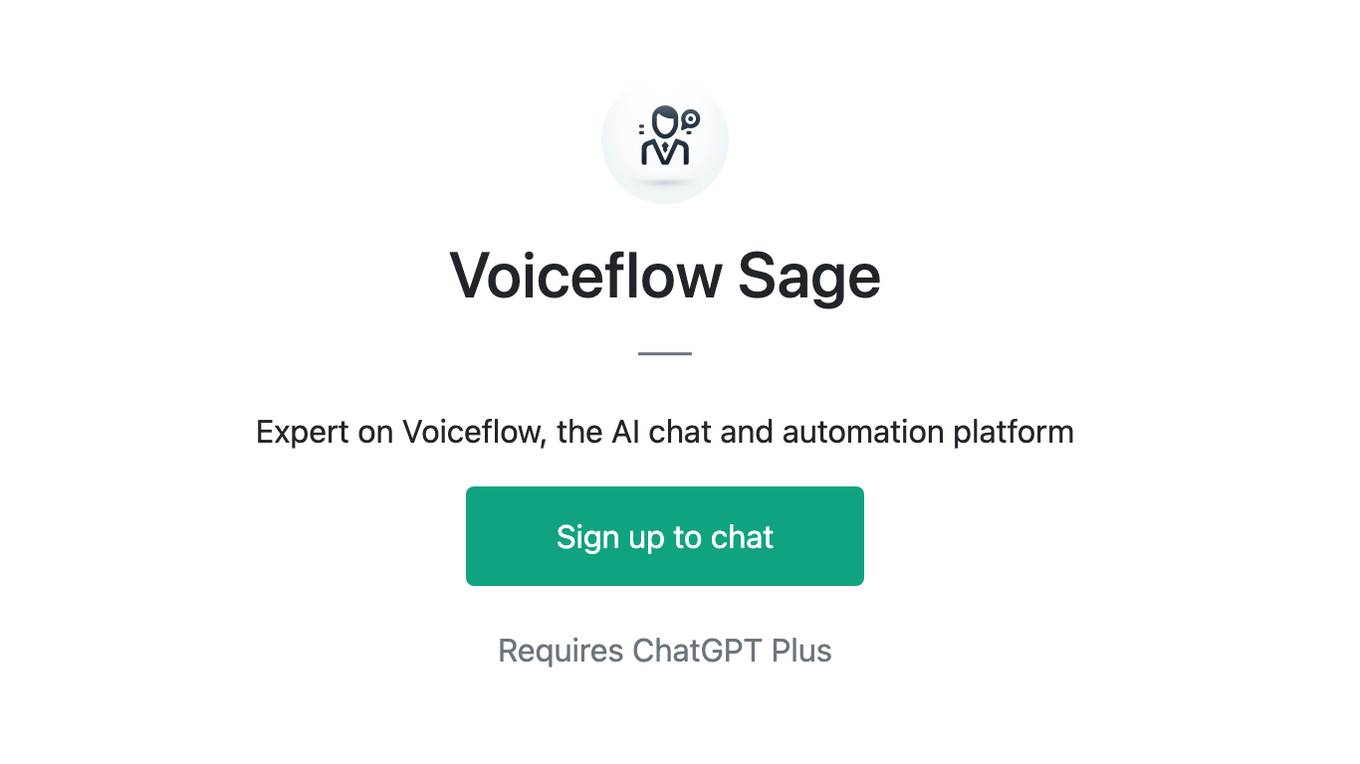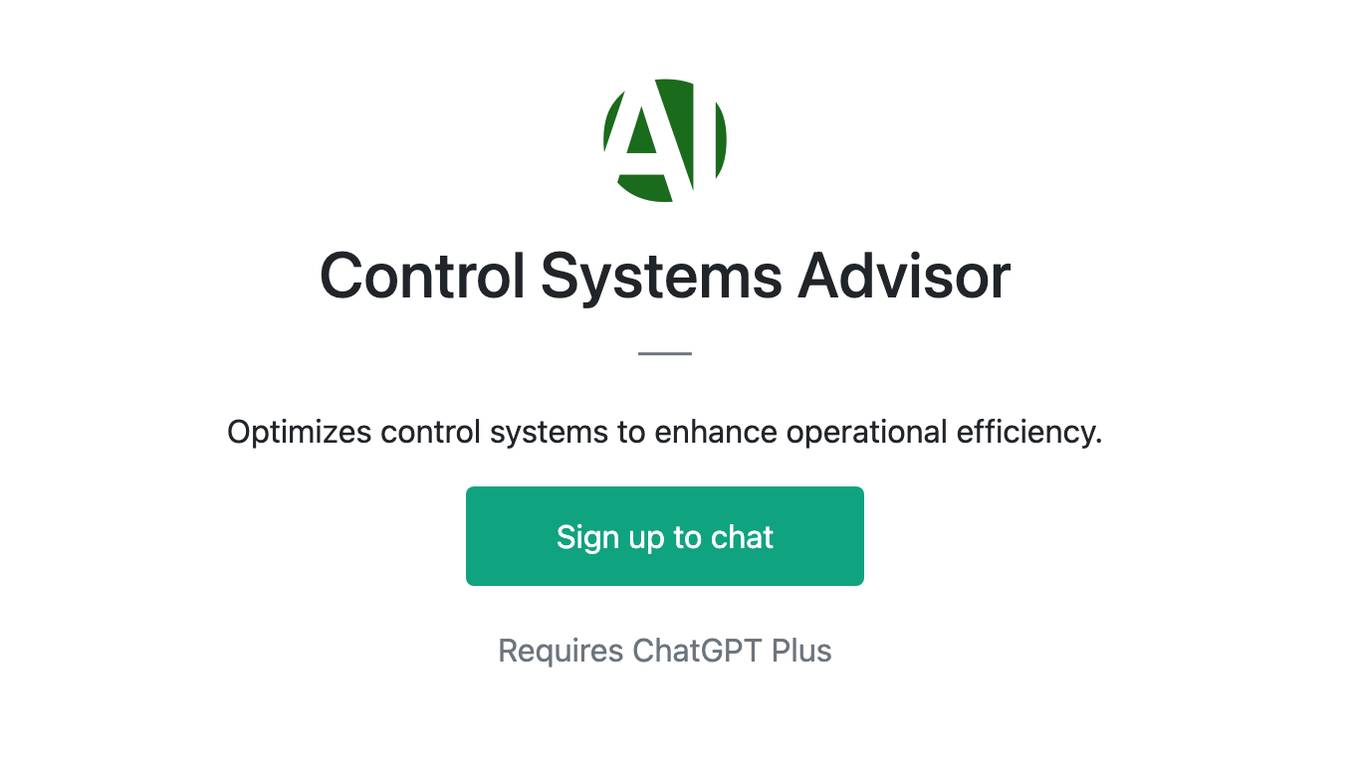Best AI tools for< Automate Design Tasks >
20 - AI tool Sites
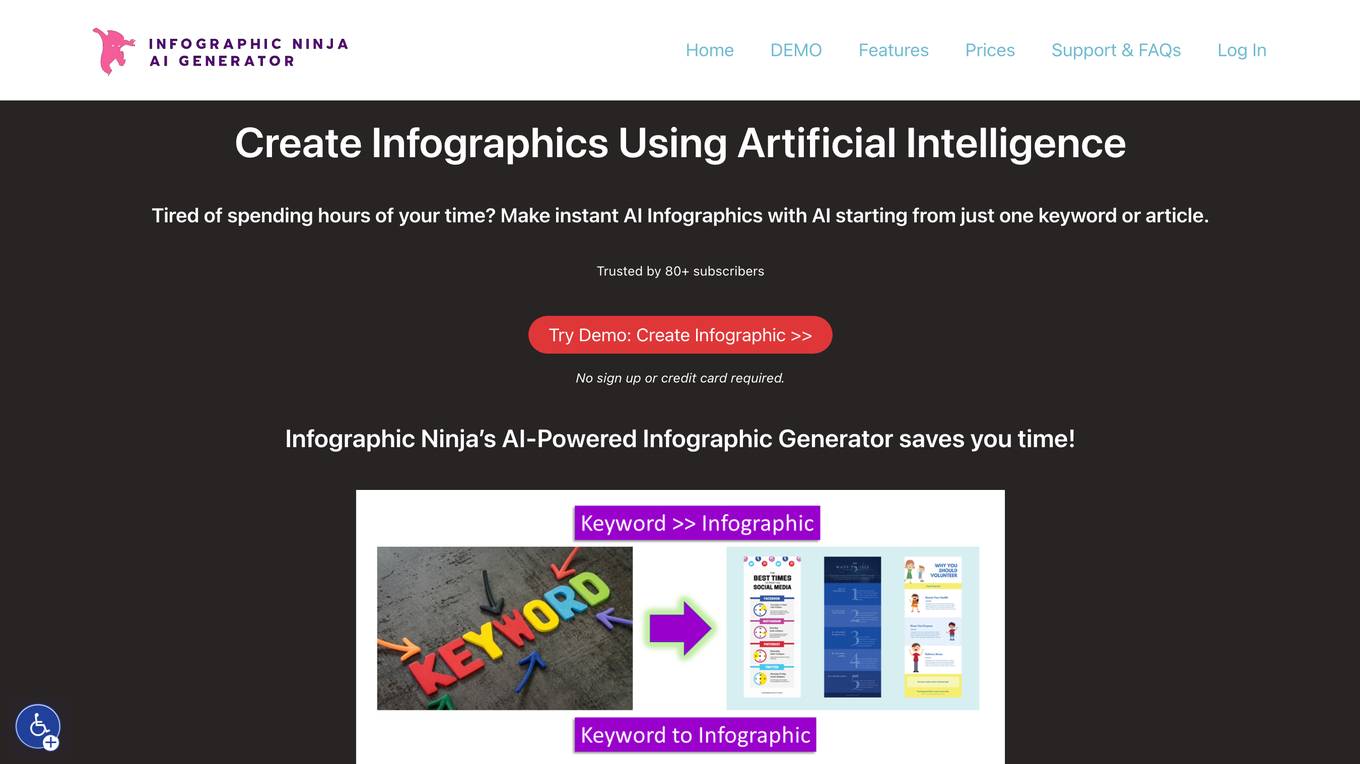
Infographic.Ninja
Infographic.Ninja is an AI-powered infographic generator that allows users to create visually appealing infographics quickly and easily. Users can turn articles or keywords into branded infographics with just a few clicks. The tool automates design elements, freeing up time for creative content development. With cost-effective and scalable features, Infographic.Ninja is suitable for individuals, educators, bloggers, and SEO agencies looking to enhance their content creation process.
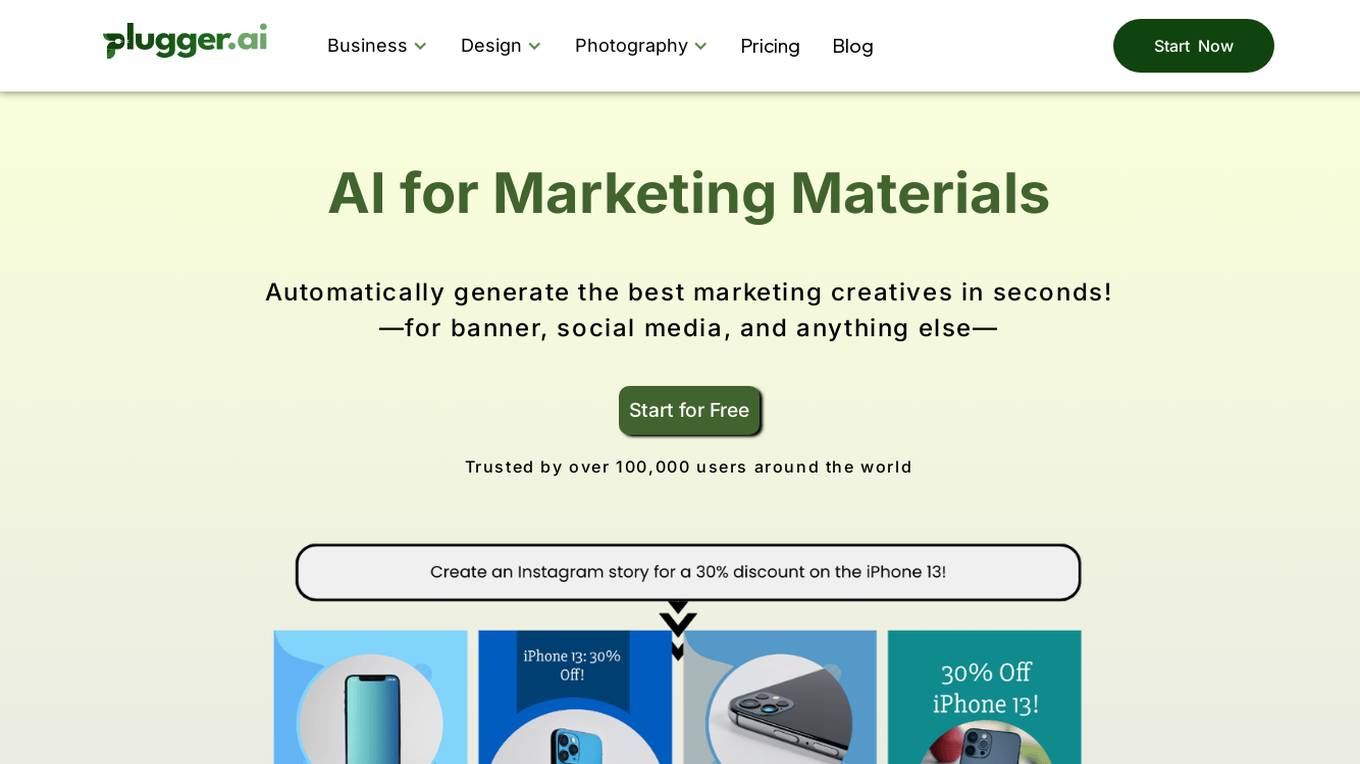
Plugger
Plugger is an AI-powered graphic design assistant that automates various design tasks to help businesses create high-quality marketing materials, social media graphics, e-commerce photography, and more. With diverse capabilities and expertise in hundreds of styles, Plugger simplifies the design process and offers data-driven designs in seconds. It saves time, improves design quality, and enhances consistency, making it a valuable tool for marketing teams, startups, and e-commerce businesses.

Start Left® Security
Start Left® Security is an AI-driven application security posture management platform that empowers product teams to automate secure-by-design software from people to cloud. The platform integrates security into every facet of the organization, offering a unified solution that aligns with business goals, fosters continuous improvement, and drives innovation. Start Left® Security provides a gamified DevSecOps experience with comprehensive security capabilities like SCA, SBOM, SAST, DAST, Container Security, IaC security, ASPM, and more.
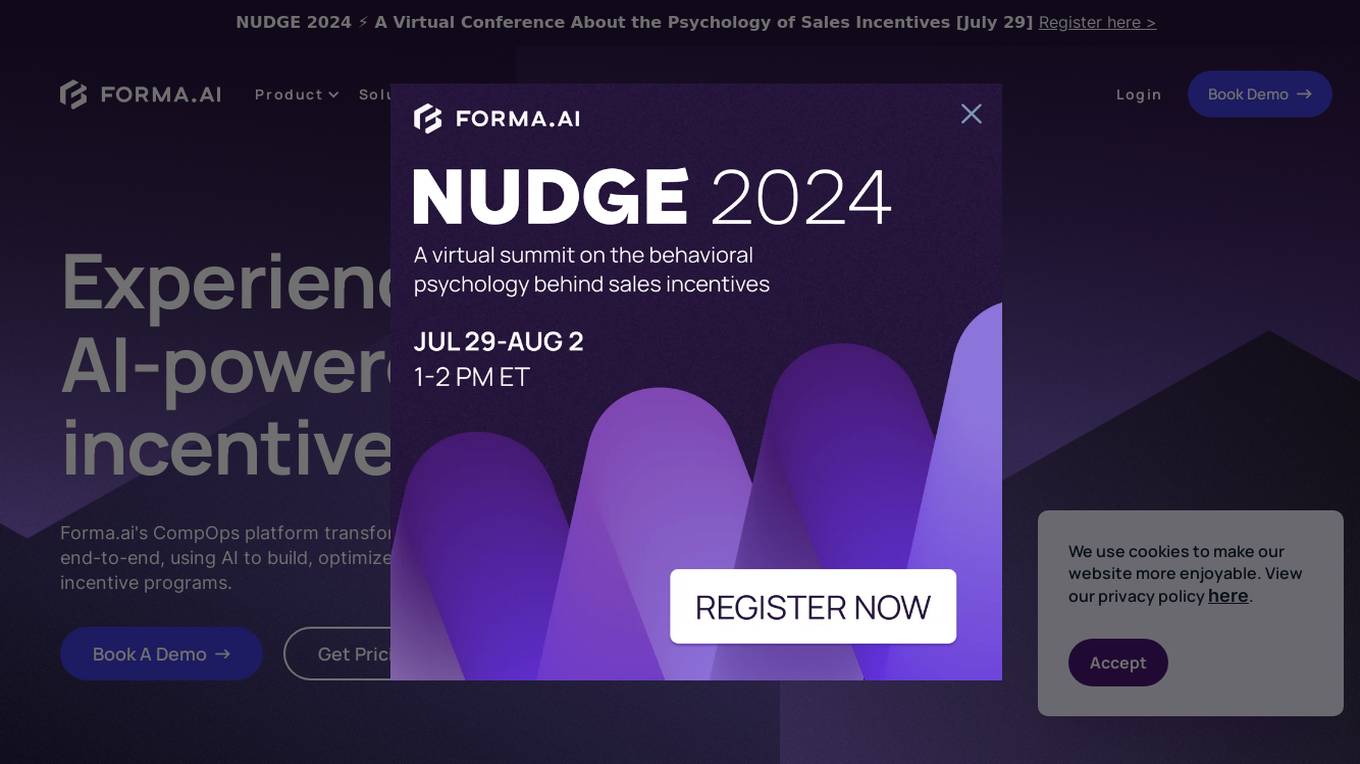
Forma.ai
Forma.ai is an AI-powered sales performance management software designed to optimize and run sales compensation processes efficiently. The platform offers features such as AI-powered plan configuration, connected modeling for optimization, end-to-end automation of sales comp management, flexible data integrations, and next-gen automation. Forma.ai provides advantages such as faster decision-making, revenue capture, cost reduction, flexibility, and scalability. However, some disadvantages include the need for AI skills, potential data security concerns, and initial learning curve. The application is suitable for jobs in sales operations, finance, human resources, sales compensation planning, and sales performance data management. Users can find Forma.ai using keywords like sales comp, AI-powered software, sales performance management, sales incentives, and sales compensation. The tool can be used for tasks like design with AI, plan and model, deploy and manage, optimize comp plans, and automate sales comp.
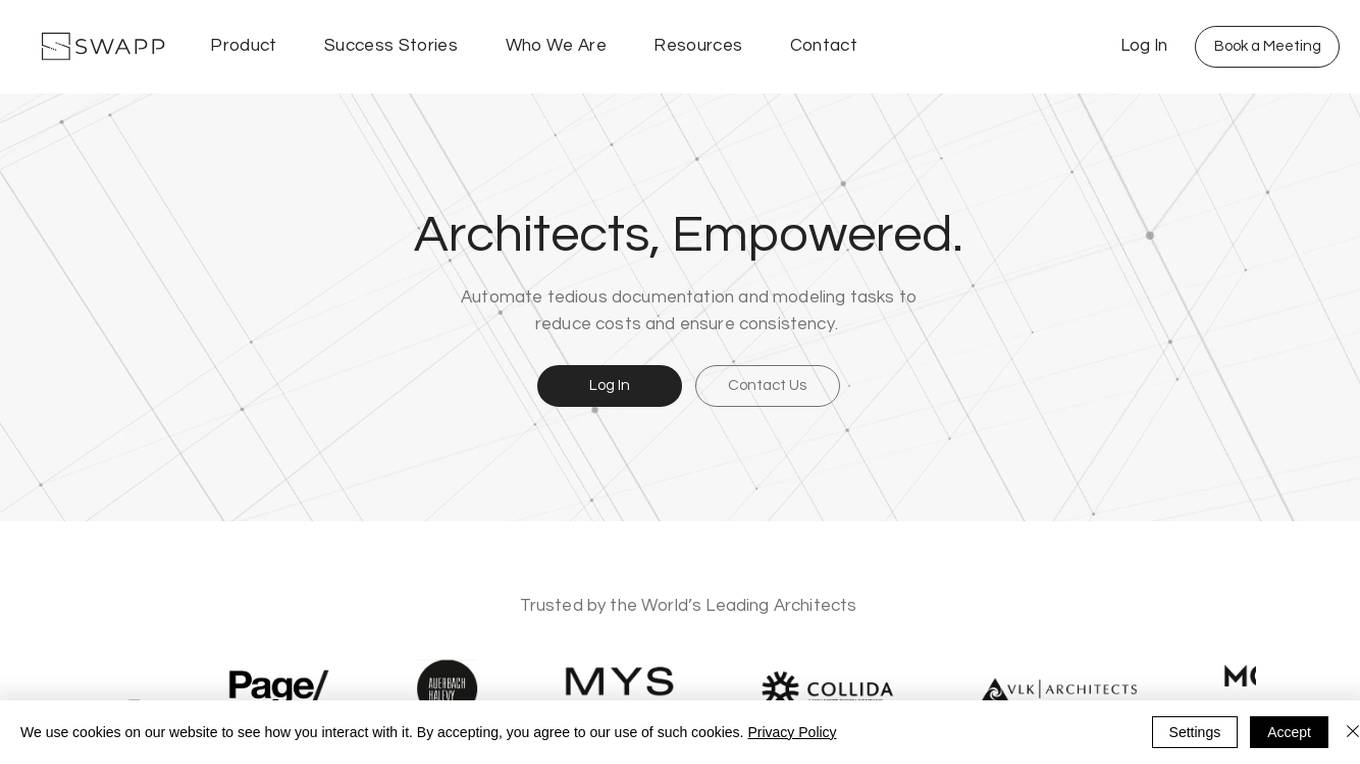
SWAPP
SWAPP is an AI-powered automation tool designed for architects to streamline documentation and modeling tasks. It automates tedious processes, reduces costs, and ensures consistency in architectural projects. SWAPP supports complete annotation, dimensioning, tagging, and customization based on firm-specific standards. It integrates with popular BIM software, enhancing workflows and efficiency. The tool is trusted by leading architects worldwide for its 2D-to-3D generative features and comprehensive automation capabilities.
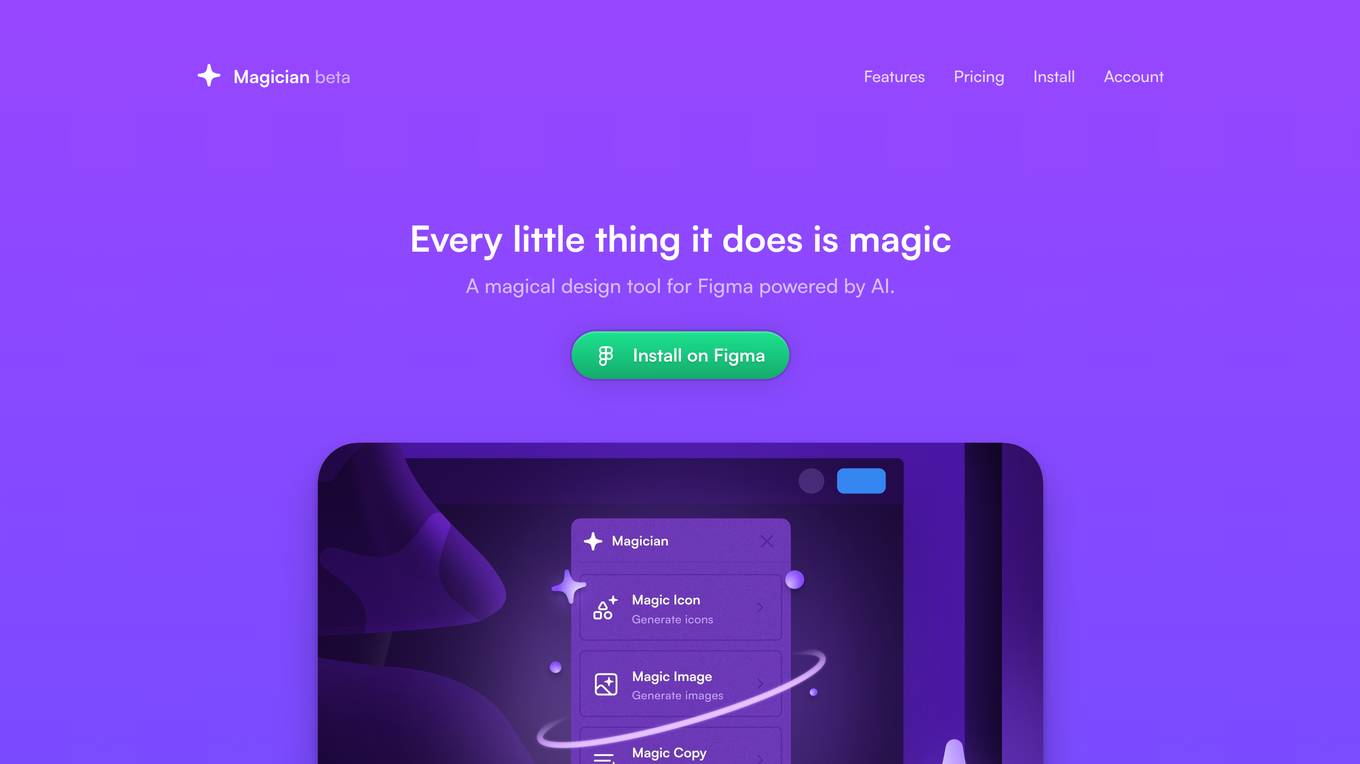
Magician
Magician is a magical design tool for Figma powered by AI. It helps you design with the power of AI to do everything from copywriting to generating unique icons from text. With Magician, you can cast magic spells that work alongside you to expand your creativity and imagination as you design.

Tango
Tango is a comprehensive platform designed to automate and streamline contract management, billing, and payment processes for small and medium professional services practices and consultancies. It offers clear scope definition, transparent contracts, automated billing, and easy payment options to help businesses save time, reduce administrative tasks, and improve client relationships. With features like self-service contracts, key term highlighting, automated invoicing, and multiple payment methods, Tango aims to simplify the entire workflow from client engagement to payment collection. Trusted by over 600 practices, studios, and agencies, Tango is a trusted solution for businesses looking to enhance efficiency and profitability.

Robot of Business
Robot of Business is an innovative business automation platform that leverages AI to help businesses streamline their operations, increase productivity, and drive growth. With a focus on customized automation design, effortless process integration, continuous support, and expert implementation, Robot of Business provides tailored solutions that seamlessly align with unique business workflows. Trusted by over 500 companies worldwide, Robot of Business offers a range of services, including AI website builder, AI review management, and custom solutions.
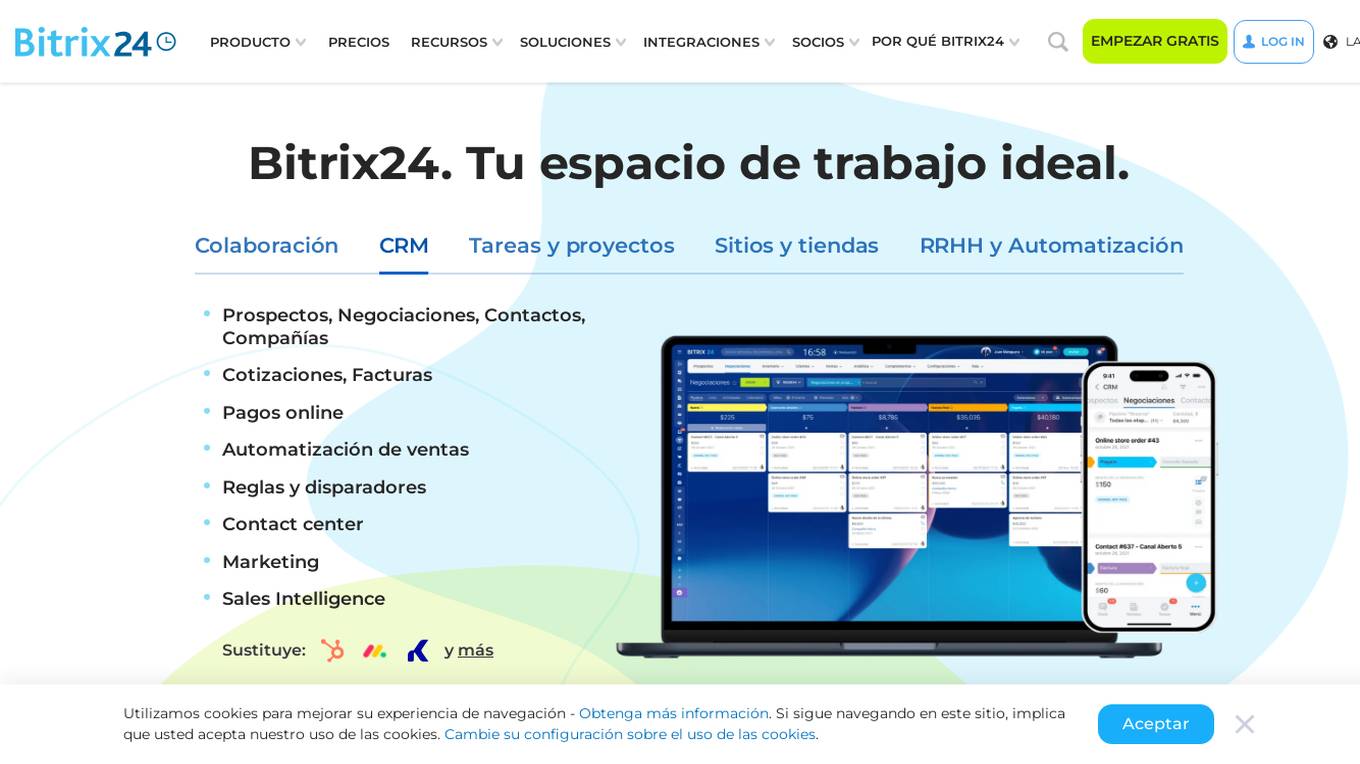
Bitrix24
Bitrix24 is an all-in-one online workspace for businesses, offering a wide range of tools such as CRM, task management, online meetings, collaboration features, and more. It provides seamless management of sales, customer relationships, team collaboration, project management, marketing, automation, and human resources functions. With features like CoPilot AI assistance, mobile CRM capabilities, task automation, and online document storage, Bitrix24 aims to streamline business operations and enhance productivity.

Questflow
Questflow is an AI agent economy platform that enables users to automate tasks, turn user feedback into action, and build AI agent teams for various workflows. It offers a developer platform to design and deploy AI swarms, empowering teams and innovators worldwide. Questflow aims to create a multi-agent economy on-chain, connecting AI agents to all apps and allowing users to customize AI agent-powered applications. With features like autonomous task completion, on-chain incentives for builders, and tokenization of AI agents, Questflow provides a composable solution for orchestrating AI agents to work together seamlessly.
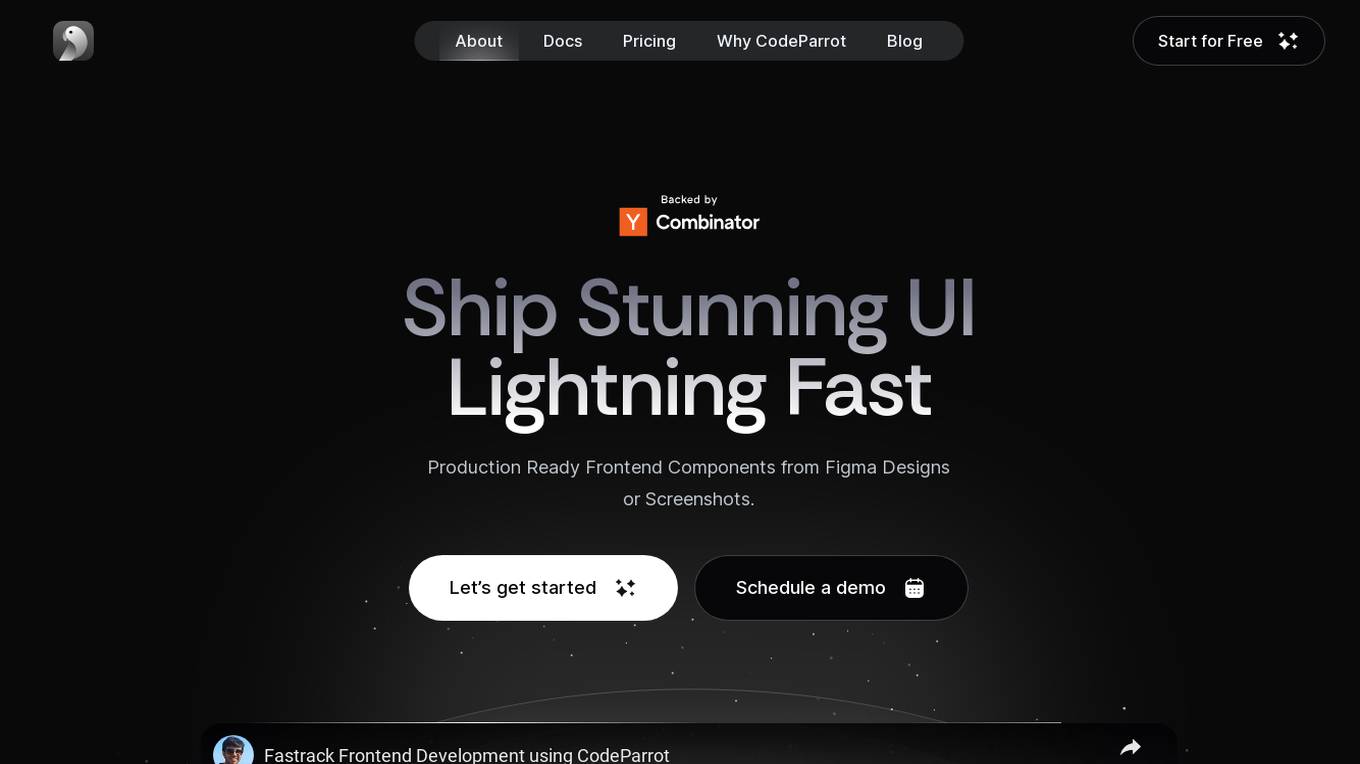
CodeParrot
CodeParrot is an AI tool designed to speed up frontend development tasks by generating production-ready frontend components from Figma design files using Large Language Models. It helps developers reduce UI development time, improve code quality, and focus on more creative tasks. CodeParrot offers customization options, support for frameworks like React, Vue, and Angular, and integrates seamlessly into various workflows, making it a must-have tool for developers looking to enhance their frontend development process.
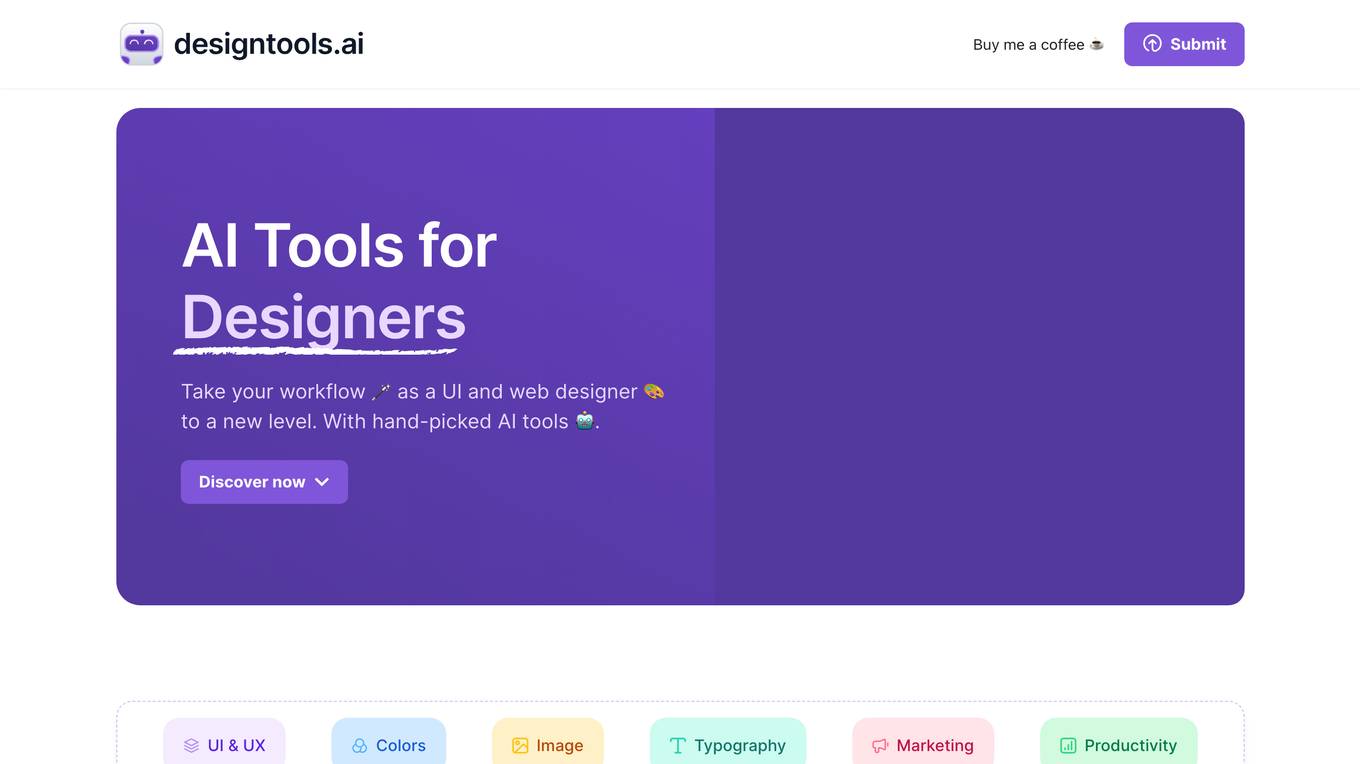
designtools.ai
This website provides a curated collection of AI tools specifically designed for designers, including tools for UI & UX, colors, images, typography, marketing, and productivity. These tools leverage artificial intelligence to enhance and streamline the design workflow, enabling designers to create stunning visuals, generate content, automate tasks, and improve their overall productivity.
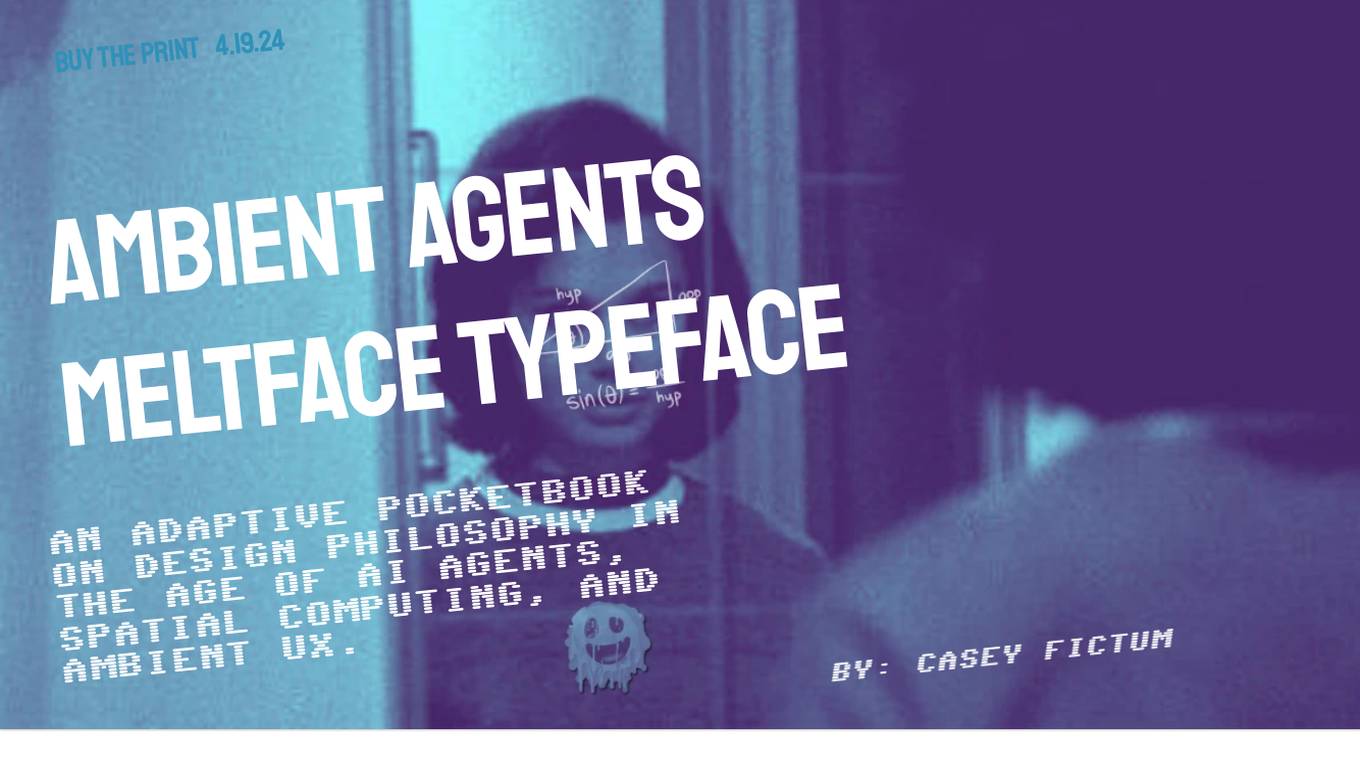
Meltface Typeface
Meltface Typeface is a book about the future of design in the age of AI agents, spatial computing, and ambient UX. It is written by Casey Fictum, a designer and philosopher who has been thinking about the future of technology for over 20 years. The book is divided into nine chapters, each of which explores a different aspect of the future of design. Chapter 1, "The Dawn of Ambient Intelligence," discusses the rise of AI agents and their potential to change the way we live and work. Chapter 2, "Artificial - This Thing Isn't Human," explores the challenges of designing AI agents that are both useful and ethical. Chapter 3, "Spatial - Around My Reality," discusses the potential of spatial computing to create new and immersive experiences. Chapter 4, "Ambient - There, But Not," explores the concept of ambient UX and how it can be used to create more seamless and intuitive experiences. Chapter 5, "Actioned - Do Things on Our Behalf," discusses the potential of AI agents to automate tasks and help us get things done. Chapter 6, "Philosophy for AI Agent Design," provides a philosophical framework for designing AI agents that are both ethical and effective. Chapter 7, "Frameworks for the Future of Design," provides a set of frameworks for thinking about the future of design. Chapter 8, "Guessing the Future of UX Design," speculates on what the future of UX design might look like. Chapter 9, "Finding Meaning & Purpose in the Future of Design," discusses the challenges and opportunities of designing for a future that is increasingly shaped by AI.
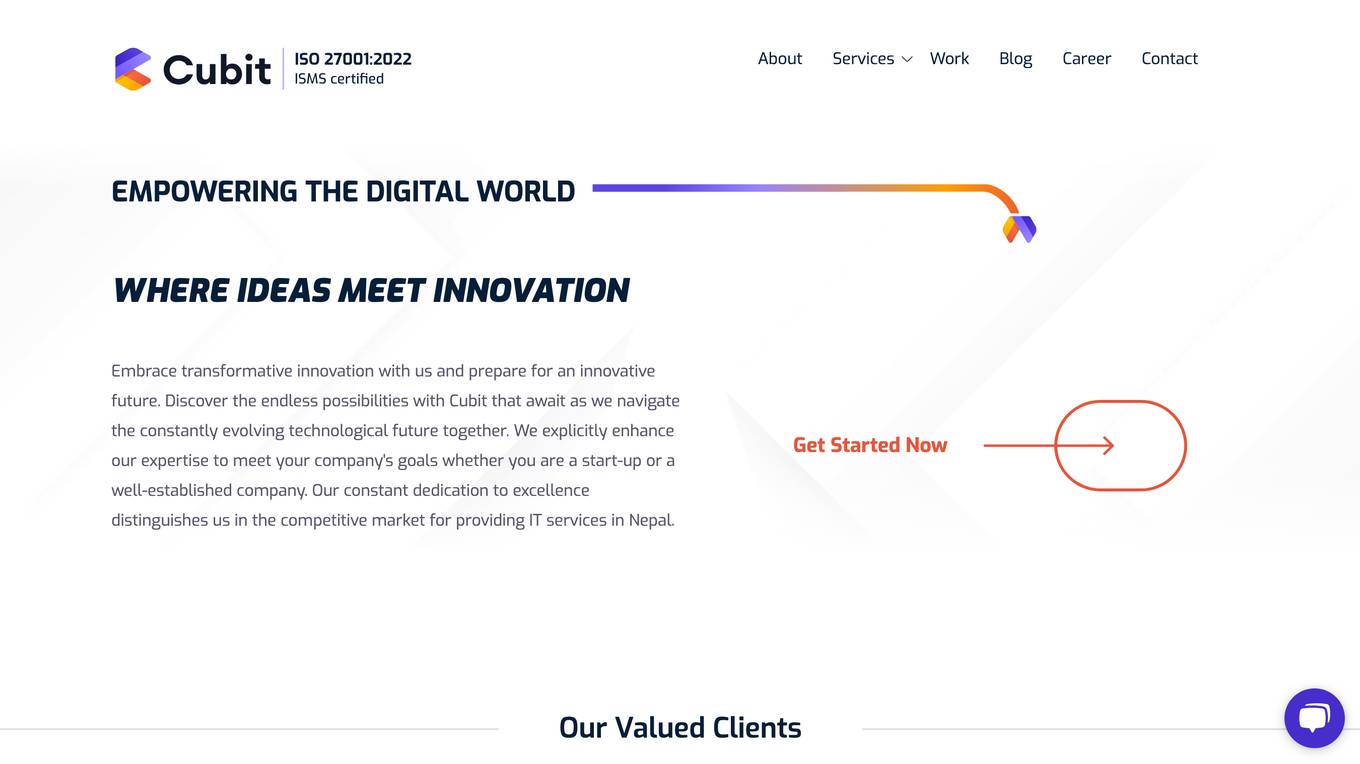
Cubit
Cubit is an IT services company in Nepal that offers a range of services including mobile app development, web development, software development, digital marketing, graphics and UI/UX, branding, chatbot, and artificial intelligence. Cubit has a team of experienced professionals who are passionate about helping businesses succeed in the digital world. Cubit's services are designed to help businesses of all sizes achieve their goals, whether it's increasing sales, improving customer engagement, or streamlining operations.
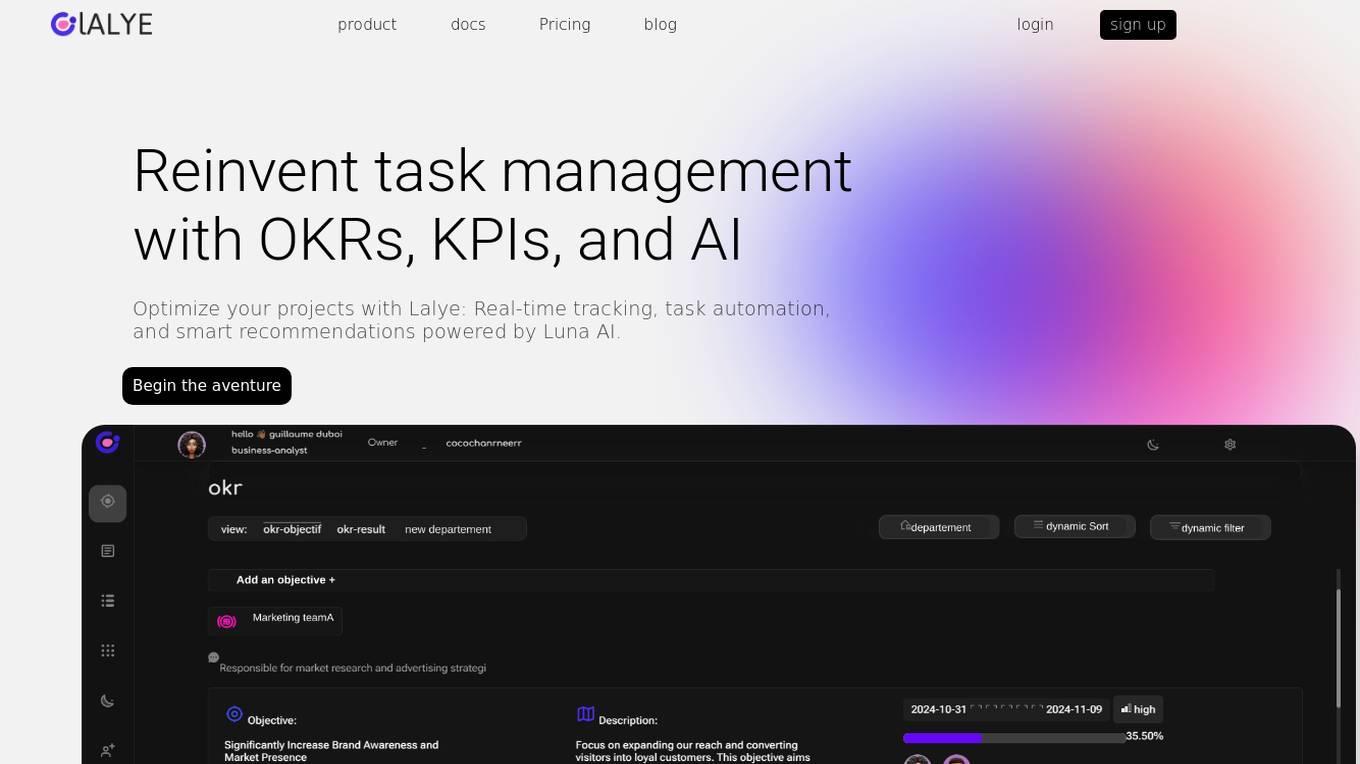
Lalye
Lalye is an AI-powered task management tool that helps users set and achieve their goals with precision. It offers features such as real-time tracking, task automation, and smart recommendations powered by Luna AI. Lalye transforms the way teams organize tasks, centralize key metrics, and leverage data-driven insights to make smarter decisions and optimize project tasks for greater success. With interactive dashboards and Luna AI, users can align their teams on strategic objectives, measure performance, and drive efficiency across the organization.
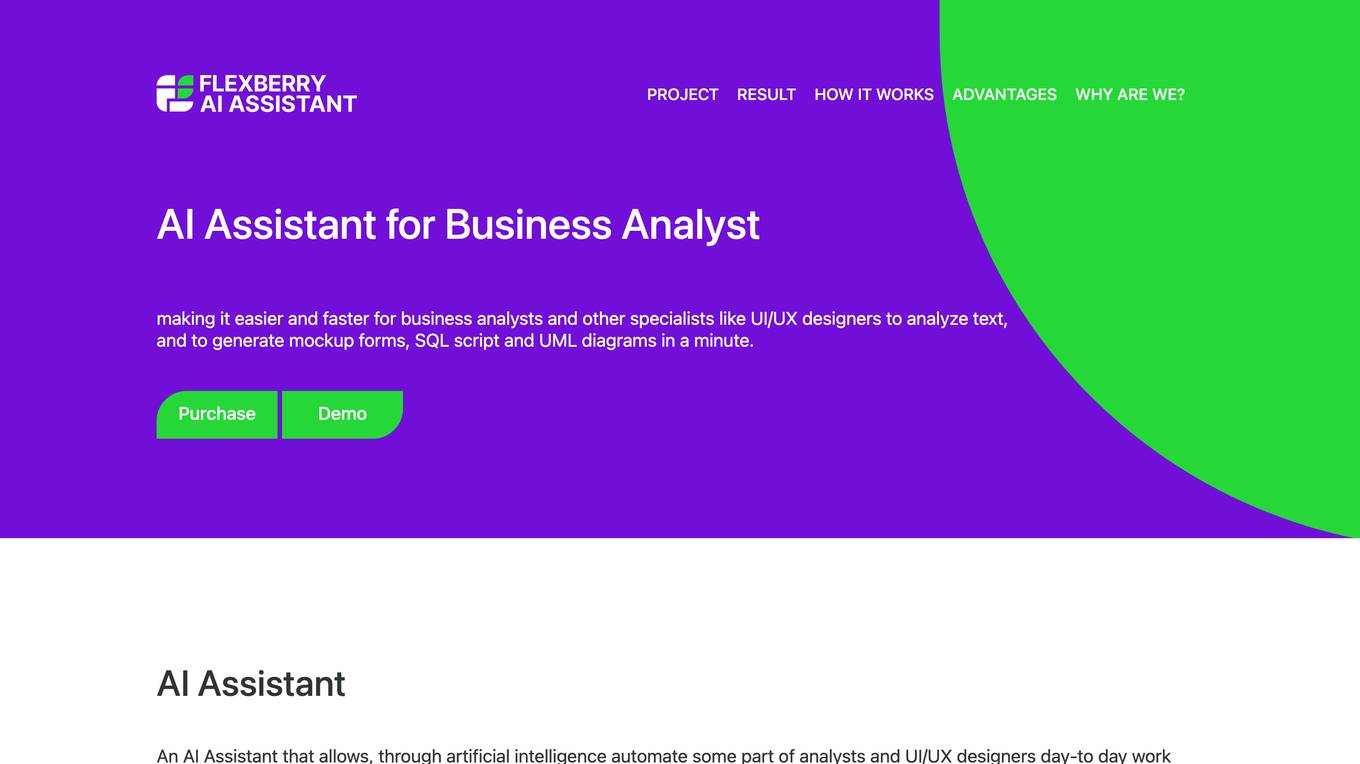
AI Assistant
The AI Assistant is an AI tool designed for Business Analysts and UI/UX designers to automate tasks related to text analysis, generating mockup forms, SQL scripts, and UML diagrams. It extracts information from natural language, structures data, generates project diagrams, and assists in project documentation. The tool aims to reduce the time needed to execute tasks and is flexible to adapt to specific company needs.
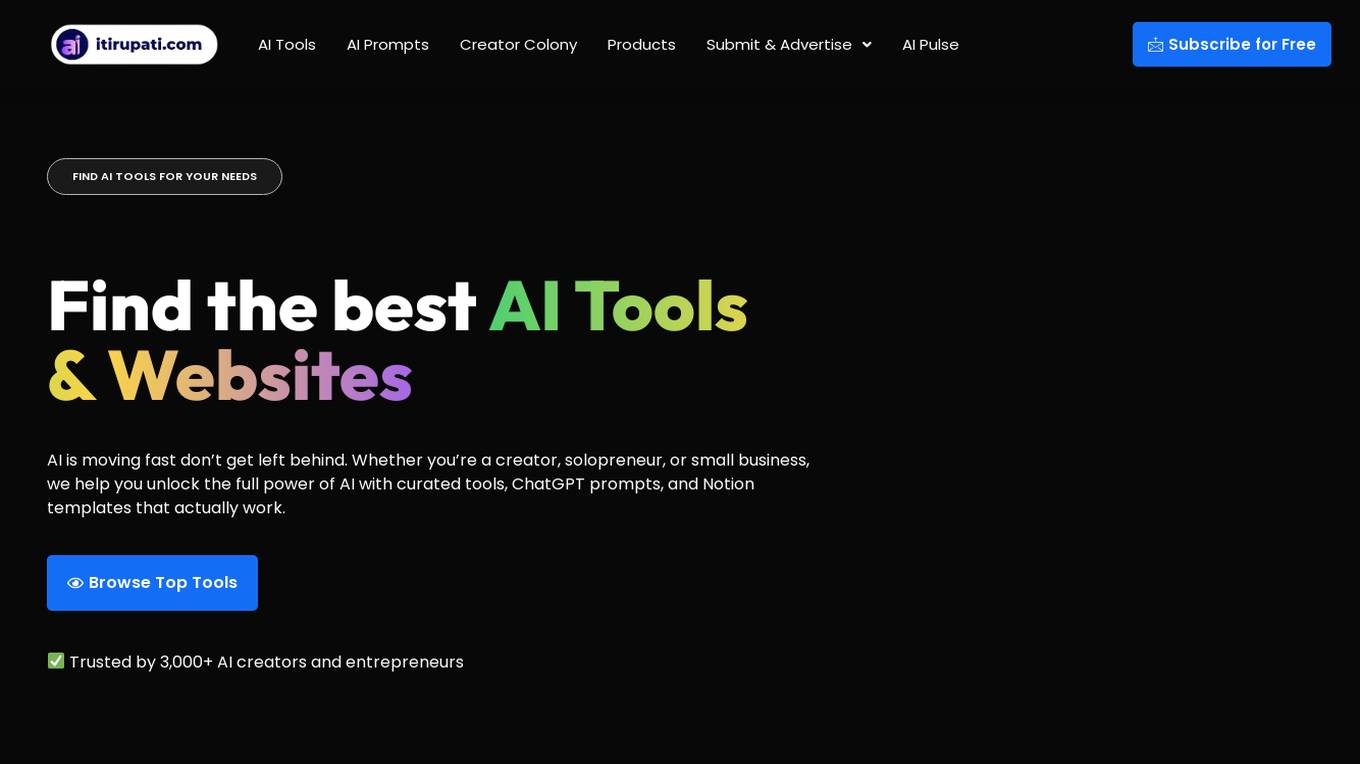
itirupati.com
itirupati.com is a comprehensive platform that serves as a directory of top AI tools, ChatGPT prompts, and Notion templates. The website caters to creators, solopreneurs, and small businesses, offering curated tools and resources to unlock the full potential of AI. Users can explore a hand-picked library of free and paid AI tools, stay updated on AI trends, access ready-to-use templates, and benefit from AI prompts for models like ChatGPT and Gemini. The platform aims to simplify the adoption of AI, making it practical, accessible, and profitable for individuals looking to work smarter and save time.
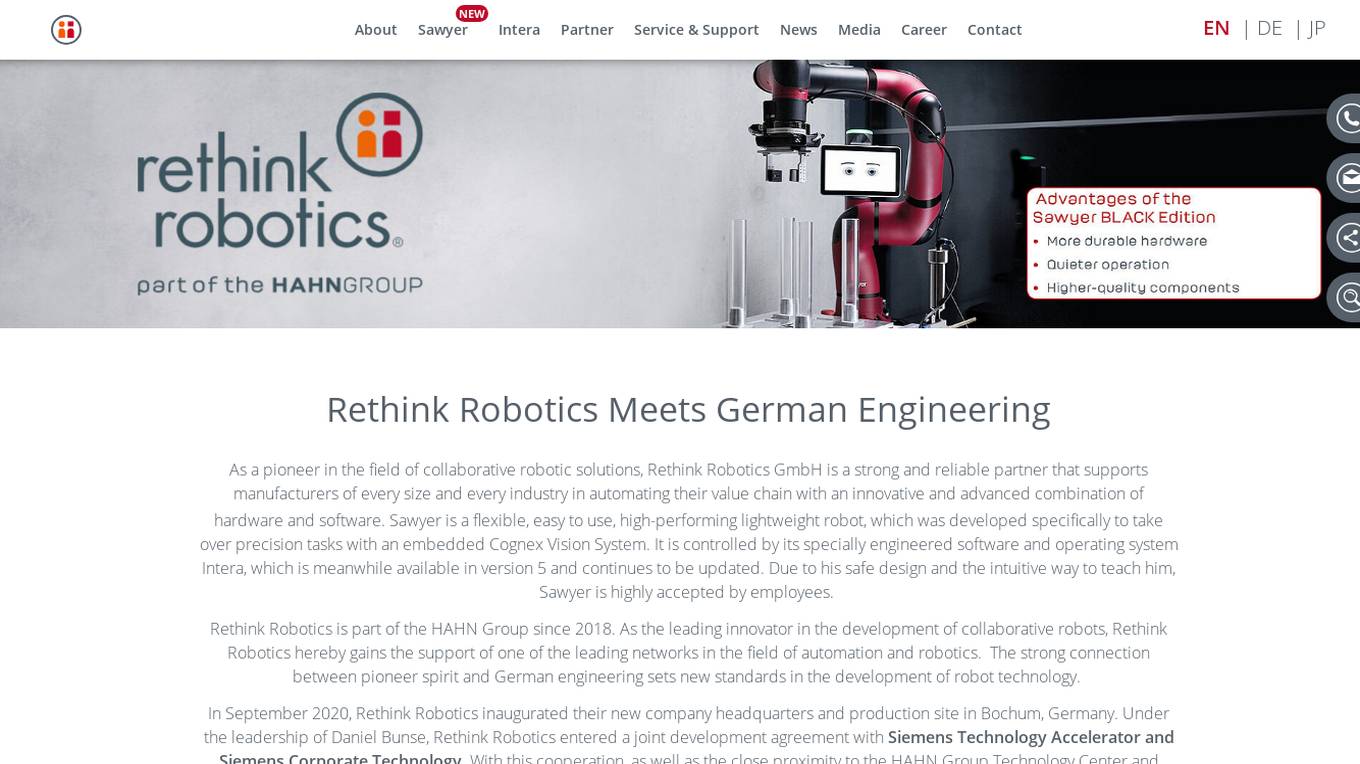
Rethink Robotics
Rethink Robotics, a pioneer in collaborative robotic solutions, offers Sawyer, a flexible, easy-to-use, high-performing lightweight robot designed for precision tasks with an embedded Cognex Vision System. Controlled by the Intera software platform, Sawyer is highly accepted by employees due to its safe design and intuitive teaching methods. Rethink Robotics, part of the HAHN Group, emphasizes German engineering and innovation in robot technology development. The Sawyer BLACK Edition features enhanced hardware quality, quieter operation, and increased durability. The HAHN Group, a global network of specialized technology companies, provides expertise and automation know-how to various industries.
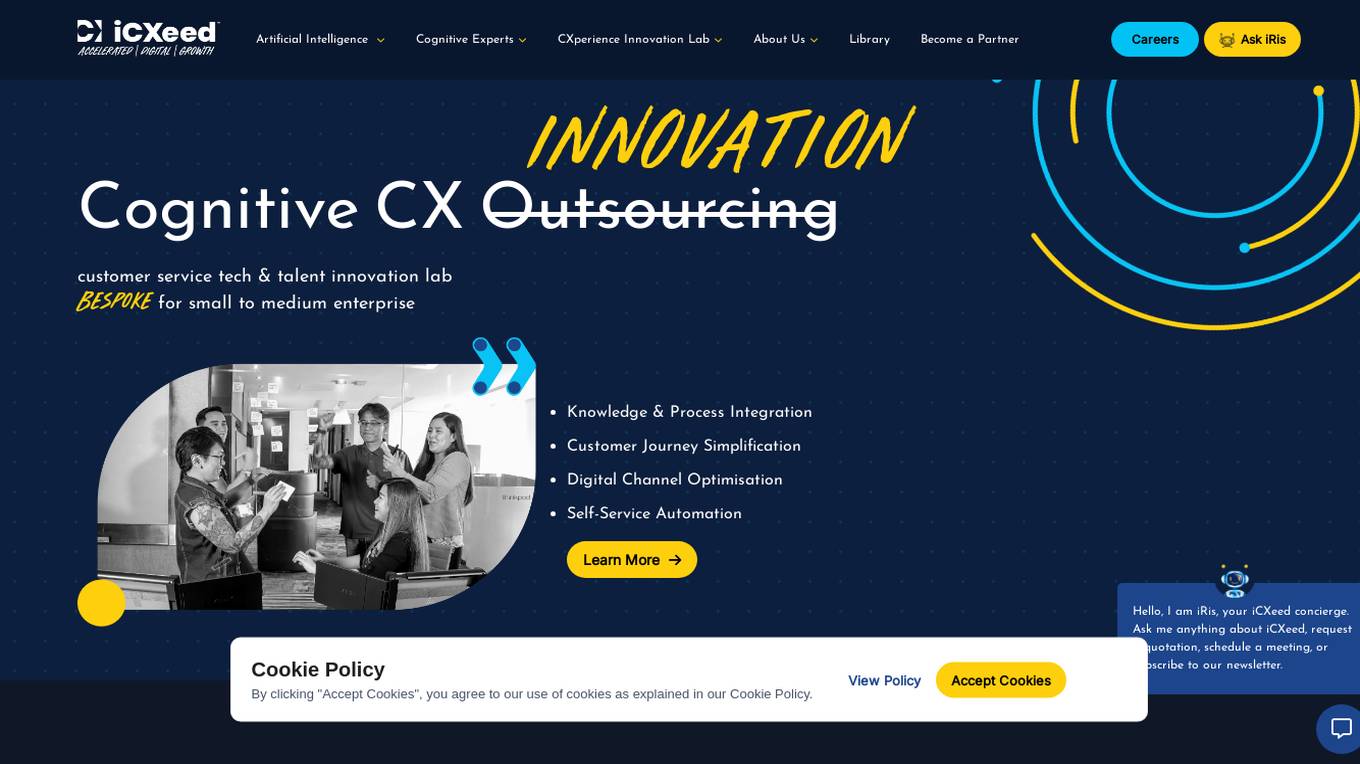
iCXeed
iCXeed is an AI-powered platform that offers a wide range of services to enhance customer experience and business operations. From artificial intelligence automation and analytics to digital marketing automation, AI design and operations, data analytics, and software development, iCXeed provides innovative solutions tailored to every business context. The platform also focuses on cognitive experts, eLearning curriculum design, proactive website chat, graphics, video, and animation services, contact and call center support, social media engagement, and talent as a service. With a strong emphasis on innovation and value delivery, iCXeed aims to revolutionize business processes and customer service through the integration of AI technologies and expert talent.

Getus.ai
Getus.ai is an AI-powered solution that offers a range of services to enhance customer interactions and boost business productivity. The platform automates routine front desk tasks, provides instant client responses, and helps in reducing operational costs. Additionally, Getus.ai specializes in crafting social media strategies, website design, search engine optimization, and social media management to elevate brands and engage audiences effectively.
0 - Open Source AI Tools
20 - OpenAI Gpts
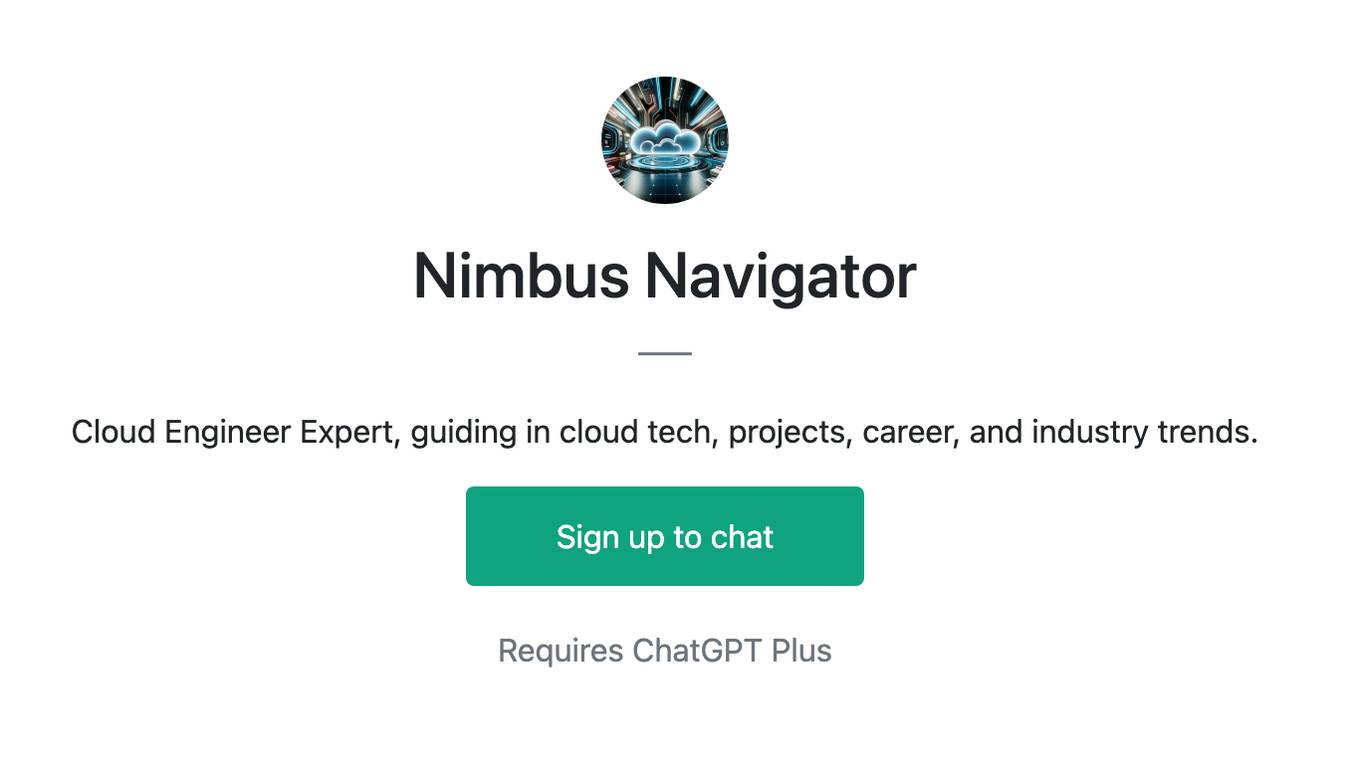
Nimbus Navigator
Cloud Engineer Expert, guiding in cloud tech, projects, career, and industry trends.

The tool to find tools you didn't know you needed
I help you find content creation tools based on your use case! Or Suprise you with tools that you didn't know you need!
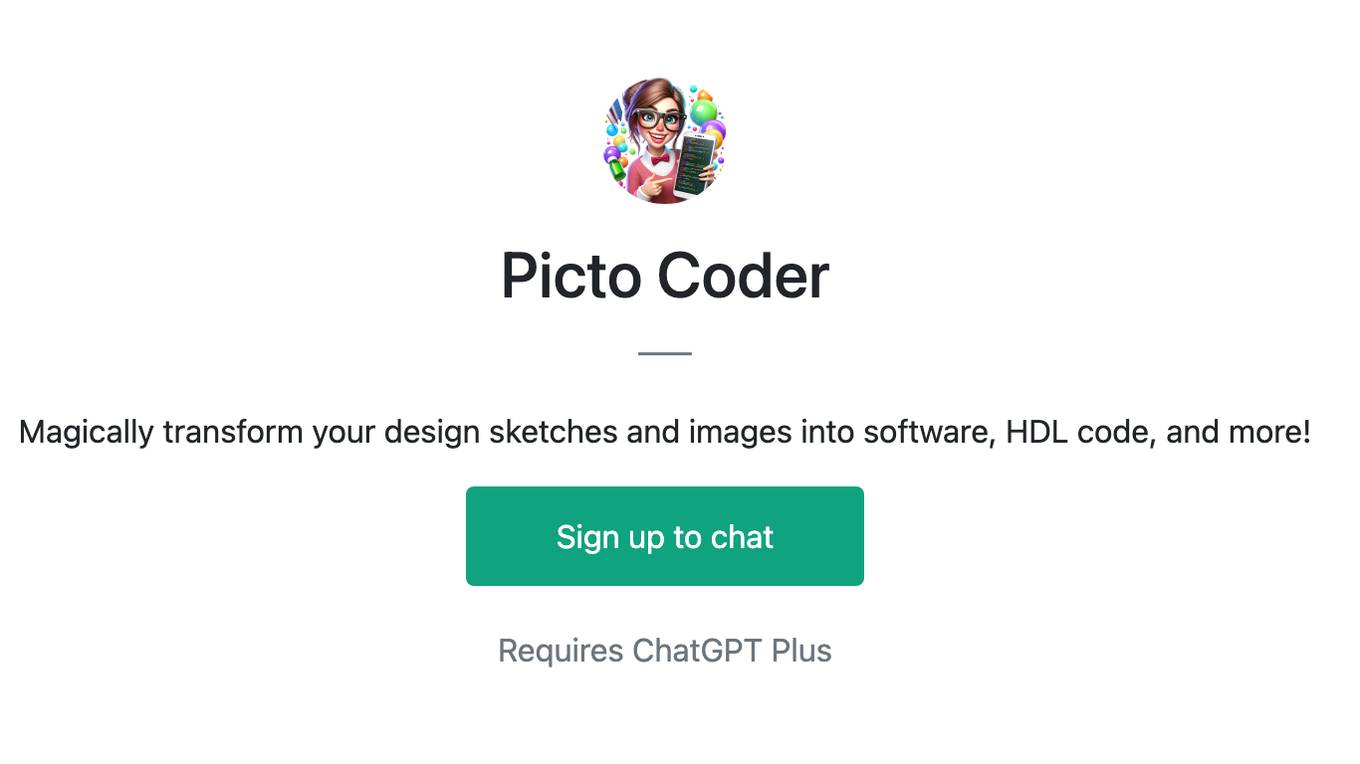
Picto Coder
Magically transform your design sketches and images into software, HDL code, and more!
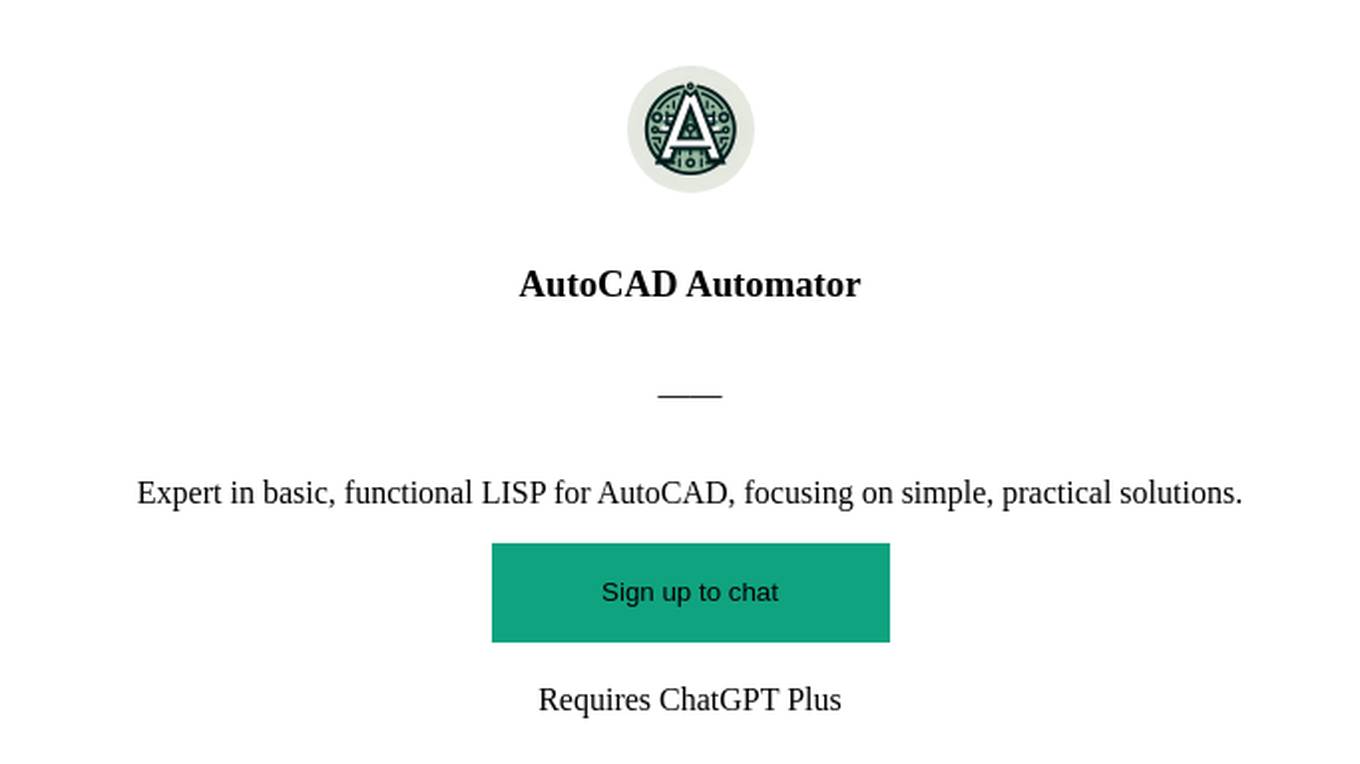
AutoCAD Automator
Expert in basic, functional LISP for AutoCAD, focusing on simple, practical solutions.

Newsletter Subscriber Flow Designer
Interactive guide for creating tailored newsletter flows.
